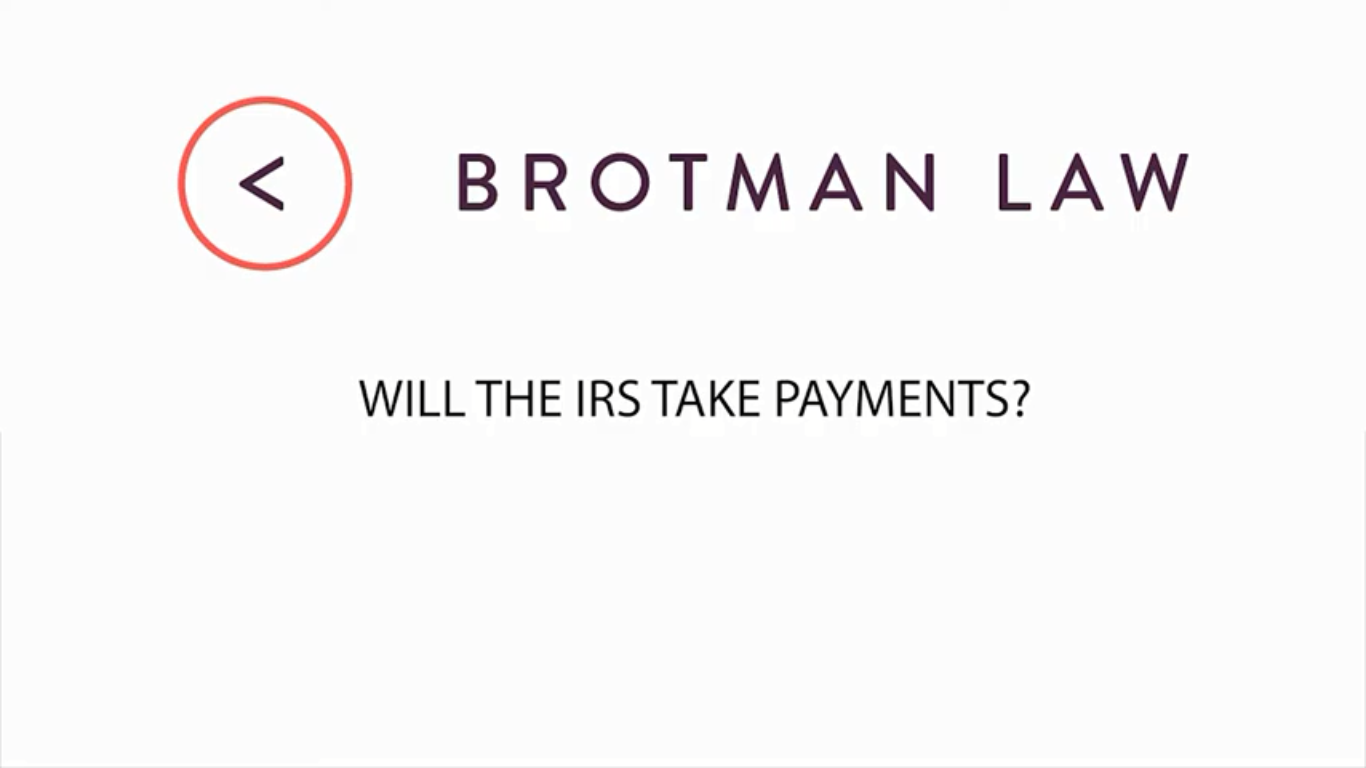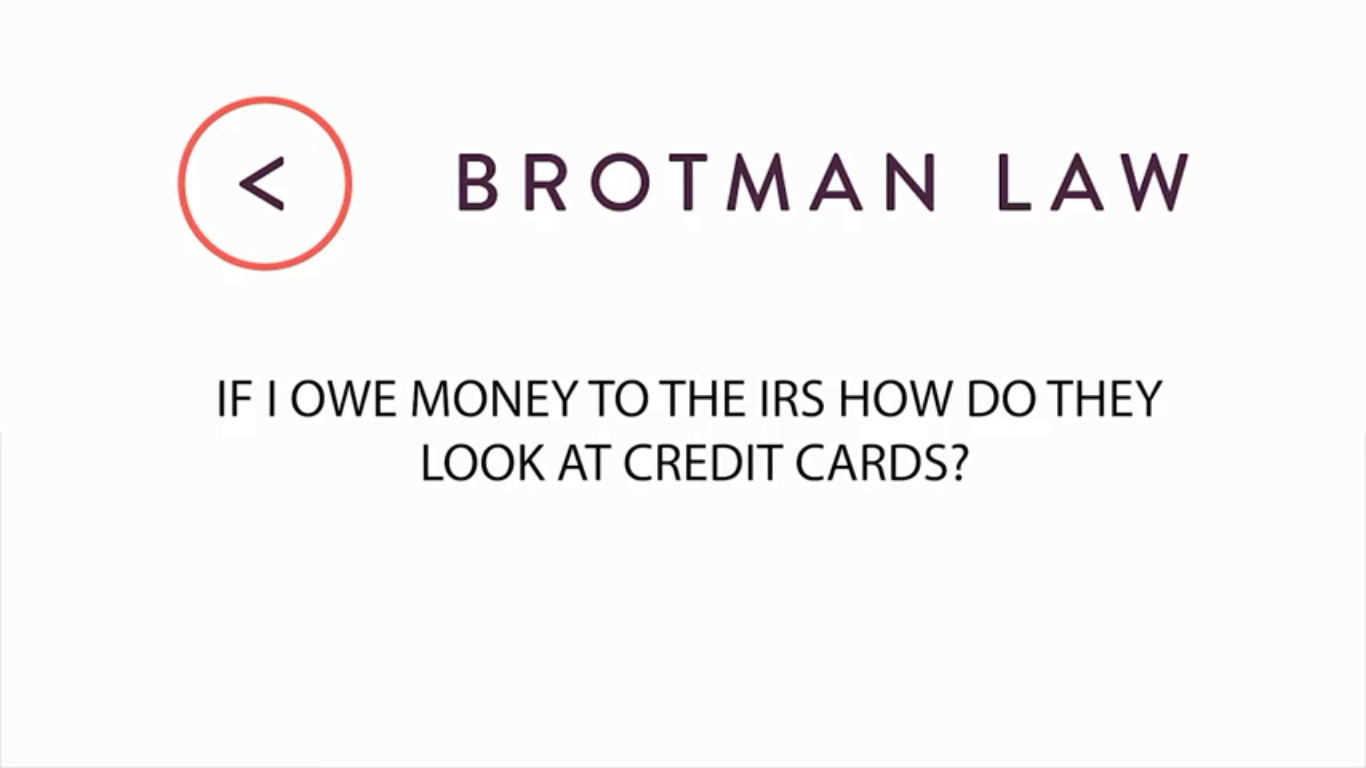Taxes and bankruptcy. Bankruptcy is what we consider a nuclear option. It is a very extreme measure. It can be a very effective tool if the taxpayer has other debts. But it has a lasting impact on the taxpayer and on their credit and on the perception of their general financial competency. We generally recommend bankruptcy as a last resort particularly if the taxpayer only has tax liability which is perhaps best settled in the Offer in Compromise program versus going and filing a Chapter Seven. However, bankruptcy can be an effective tool where there are other debts or where an Offer in Compromise might not be the most feasible route to go for a variety of circumstances. Obviously this is based on the individual and the variety of circumstances that surround most people which were all different. But in terms of bankruptcy, we are dealing with liabilities that are income taxes. There cannot be any indicator of fraud or tax evasion. We are dealing with tax that are at least three years old.
rs-irs-tax-debt-resolution
IRS liens so I want to talk briefly about IRS liens
IRS liens so I want to talk briefly about IRS liens IRS lien or lean in general is a security interest in a piece of property so an IRS lien it represents the government’s interest in the personal and real property of a taxpayer a tax lien has the effect of attaching to all the taxpayers real and personal assets and in the event of the taxpayer goes to sell one of those assets the government it has a claim to that money now in actuality liens really serve two purposes number one they attach to property and make it really difficult to sell houses and occasionally it can make it really difficult to sell vehicles or larger items of personal property to believe those that are registered with the DMV and secondly it leans have a very negative impact on a taxpayer’s credit and their ability to borrow now the officially the policy statement from the IRS is that liens are used to preserve the government’s interest but there is a big debate between. The IRS and the tax practitioner community on what the efficacy of liens are particularly where a taxpayer doesn’t have any assets for the government to secure because the government likes to say that leaves are a necessary measure of preserving a security interest we would argue that the liens are a punitive measure that really only impacts a taxpayer’s credit particularly you have a case where taxpayer has entered into installment agreement that will full pay a liability and the IRS goes and files lien anyway that is a particularly hot topic of debate, but an IRS tax lien can be dealt with in one of three ways you can withdraw you can ask the government to withdraw the lien meaning that the gleam effectively never happened and will completely disappear from a tax payers credit the government can release.
IRS levies. A levy is a seizure of property or assets.
IRS levies. A levy is a seizure of property or assets. Mostly what IRS levies are associated with is our bank levies. The IRS will come in and will levy a taxpayer’s account. Levy is different than liens. Liens do not immediately effect property in terms of seizing that property. A levy is a seizure. So, the IRS can levy bank accounts. They can levy accounts receivable. They can levy brokerage accounts or other financial assets. Levies are often a source of stress for taxpayer and when we get the majority of our levies clients, “Hey, the IRS wiped out my bank account.” Levies can be defeated with a number of things. The most important thing to defeat a levy is prevention. You want to make sure that you’re working with a revenue officer or with a CS to avoid any levies. When levies are issued it is important to fight them. You can fight them I numerous ways. The easiest way to fight a levy is to substantiate a documented hardship with the IRS.
Interest and Penalty Abatements
Interest and penalty abatements. One of the more commonly complaints that we get around our office is the amount of interest and penalties that are tapped on to liabilities. A taxpayer will call us up and say, “Hey, we owe $20,000 to the IRS but they charged another $20,000 in interest and penalties that we didn’t even know them. Is there anything that we can do about the interest and penalties?” The short answer is “yes,” particularly with respect to the penalties. IRS interest abatements are very difficult to get. The IRS fears interest as what they are entitled to because of a delinquent tax liability. The IRS interest rate usually is pretty low. It’s usually defined by the statutory interest rate. It’s usually between a 3% and 6%. So, it’s usually not that big of a killer. The killer is the penalty portion of it. The penalties are often substantial. They can raise anywhere from 10% to 75% and they can turn a small liability into a fairly substantial one really, really quickly. Penalty abatements are governed through Section 20 of the Internal Revenue Manual.
Differences Between the Federal Tax System and the California State Tax System
Briefly I want to talk to you about differences between the federal tax system and the state tax system. As I mentioned, due to limited resources state are usually more aggressive in their collection tactics and their examination tactics than the federal government and the principal reason for this is because taxation for the states is the principal source of revenue racing. A lot of times when there is a budget shortfall the state will lean on their self tax and the federal tax bureau will lean on the income tax to help mandate collections priorities and help raise revenues either through collecting past due liabilities or examining returns and finding new ones. In general, the states because of their limited resources will rely more on in voluntary collections actions than field representatives so there’s much greater reliance at the state level for collections processes that are instituted from a remote location so for example in California the main center of operation for the FTV which is the Franchise Tax for the State of California income tax bureau is in Sacramento. Most FTV actions are initiated from the Sacramento office whether they are levis, phone calls, contacts with tax payers, or any sort of collection actions. The states have limited resources at the local level.
What To Do When a Collection Agent Acts Improperly
So, state collection agents are under a very tight guideline for how they are supposed to behave and their behavior is mandated through either statue or through administrative collections manuals or procedures so a lot of the conduct that they have is governed internally. Although you do want to foster a generally good relationship with the agent, some agents are notoriously difficult to deal with or some go off the reservation from time to time. So, if you have a situation where you have a breached of conduct, you’d make sure you want to document the conduct that occurred, you want to get the agent’s name and ID number or station number and then you want to ask the collection agent for a phone conference with their manager. One of the rights that is installed for most tax payers is access to an immediate supervisor so the collection agent – In California, for example, collection agent is supposed to have the supervisor give you a call back within 48 hours. Some collection agents will not do this, they’ll refuse to enter notes in the system, they won’t pass the message along and in which case you are still entitled to that phone call.
Will the IRS Take Payments?
If You have a question regarding if IRS will charge you, then do watch this video to know more about it.
How Much Is the IRS Going to Ask Me to Pay Per Month?
IRS Form 433 ABS you can look at the expenses and the expenses are things.
How Does an IRS Payment Plan Work?
So an IRS payment plan and negotiating one is both an art and a science. Let’s talk about the science side of things. So IRS payment plans start based on a formula and the formula looks at the available assets that a taxpayer has and the IRS determines whether the taxpayer could full pay or substantially pay the liability based on the value of those assets. So for example if you owe the government $50,000 and you have $50,000 sitting in your bank account, the IRS is going to want that absent some good reason. So they go through your expenses, they look at your house, in certain cases they look at the equity in your house, can you borrow against any assets, things like that. If they determine that you don’t have sufficient equity in your assets, then it becomes an income and expense analysis they look at your various sources of income they usually average it over a three-month period and then they’ll look at your ordinary and necessary living expenses. So the real kicker with this is the term ordinary and necessary. The IRS has standards and they’re based on both national standards and local living standards on how much things should cost. So like for example, with your housing the IRS has an average based on where you live of how much housing is in your area. If you go to.
If I Owe Money to the IRS How Do They Look at Credit Cards?
The IRS considers necessary they won’t write in minimum credit card payments and will require you to pay a monthly installment.









